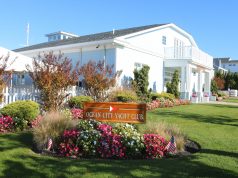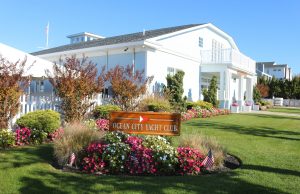
By Donald Wittkowski
In a surprise move Thursday night, Mayor Jay Gillian yanked a proposed ordinance to regulate street performers on the Ocean City Boardwalk amid opposition from some teenage entertainers who complained it would hurt them financially and violate their constitutional right to free expression.
Gillian asked City Council to table the ordinance to allow more time for his administration to study the issue. He plans to form a committee consisting of street performers, Boardwalk merchants and the police to come up with recommendations.
Gillian was unsure how long the study would take and whether the city would need an entirely new ordinance based on the committee’s recommendations. He also did not know whether new regulations for Boardwalk performers would be ready in time for the peak summer tourist season.
The mayor said he hopes the committee will craft a plan “that works for all of us.”
“Every now and then we have to take a break,” he said of his desire to slow down the ordinance for further study.
Gillian spoke after three teenage performers and their parents appeared before Council to criticize the proposed regulations. Afterward, the teenagers claimed victory.
“I feel that Mr. Gillian saw our points, took it in and realized that the ordinance was a mistake,” said Ricky Hardin, 14, a freshman at Ocean City High School.
Hardin performs in a band that began playing on the Boardwalk last summer. Andrew Leonetti, one of Hardin’s bandmates, also called on Council to kill the proposed ordinance.
“I think this is wrong,” said Leonetti, 15, who is also a freshman at Ocean City High School.
Gillian wants to confine street performers to a wider and less commercialized section of the Boardwalk between Fifth and Sixth streets to avoid mass congestion.
City officials say regulations are needed to make sure Boardwalk stores are not blocked by large crowds that stop to watch the performers.
Hank Glaser, a longtime local businessman who represented the Boardwalk Merchants Association, spoke in support of the ordinance. Glaser said the regulations would help preserve the Boardwalk’s reputation as a “well-behaved place.”
(The young gentlemen listed above have no association with the video filmed below.)
In addition to confining the performers to an area between Fifth and Sixth streets, the ordinance would also have required them to stay near the railings of the Boardwalk, keeping them away from the busier center sections.
Matthew Stockburger, 17, who plays his guitar on the Boardwalk during the summer, argued that the proposed ordinance would infringe on his constitutional right to free expression by limiting the area where he could perform.
“It’s a clear and blatant violation of my First Amendment rights,” said Stockburger, a high school senior in Bucks County, Pa., who lives with his family in Ocean City during the summer.
Stockburger was joined at the Council meeting by his mother, Kim, who also contended that the proposed ordinance would be unconstitutional.
However, she expressed relief that the ordinance has been placed on hold.
“My first reaction is, I wanted them to table it and look at it because it is not fair to the kids,” she said.
Gillian stressed that he did not want to pass an ordinance that would be unfriendly to youngsters.
Under the proposal, musicians, singers, dancers, magicians, jugglers and other street performers would have to buy a $50 permit from the city.
Hardin said he doesn’t make a lot of money in tips while playing on the Boardwalk, so a $50 permit would be too expensive.
The ordinance would place other restrictions on performers, including the hours they are allowed on the Boardwalk and the noise levels.
Although the tourist-friendly Boardwalk would be the prime spot for street performers, the ordinance would set aside other public areas for entertainment, except those within 100 feet of a school, a library or a church while in session.
An entertainment zone would also be created in the heart of the city’s central business district on Asbury Avenue between Sixth and 11th streets.
In other business Thursday, Council also tabled a proposed ordinance to remove “coastal cottages” from a redevelopment zone concentrated along Haven Avenue.
Coastal cottages represent a new generation of smaller, more affordable homes that are designed to attract more year-round families to town. However, city officials want to pause construction of the cottages while a study is undertaken of their impact on the surrounding neighborhoods.
City Business Administrator Jim Mallon explained that more time is needed to notify the property owners who live near the cottage development zone, so the ordinance must be delayed. The measure is now expected to come before Council for a public hearing and final vote on April 14.
Costeria Cottages, an 18-home development on Haven Avenue between 12th and 13th streets, is currently the only coastal cottages project under construction.
Costeria Cottages and other proposed coastal cottage projects that were previously approved by the city would be grandfathered in under the ordinance, allowing them to be built.
Also Thursday, Council formally introduced a $75.1 million municipal budget for 2016. The spending plan includes a local property tax increase of about a penny.
The final budget is slightly higher than the $74.2 million proposal originally submitted to Council by the mayor in February.
Since February, the city has been able to secure an extra $194,650 in library funding to boost revenue and help reduce the increase in property taxes by a small amount, Finance Director Frank Donato said.
Originally, the tax increase was expected to be 1.1 cents, but will now drop slightly under a penny. For the owners of a typical home assessed at $500,000, it will mean they will pay about $48 more in property taxes on an annual basis, Donato said.





